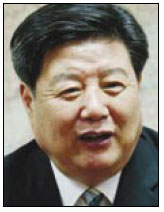Investment
ChiNext seeks facelift for public image
By Zhong Nan (China Daily)
Updated: 2010-10-28 11:09
 |
Large Medium Small |
|
Li Zibin, chairman of China Association of Small and Medium Enterprises, said ChiNext has a long way to go to become a global bourse for high-tech companies and startups. |
BEIJING - High valuation and strong speculation are among the major obstacles that are hindering a Chinese high-tech stock exchange from growing into a global high-tech ladder such as Nasdaq, business leaders and experts said.
"The ChiNext board is too speculative, with its companies' price-earnings ratio (P/E) running at an unusually high level," Li Zibin, chairman of China Association of Small and Medium Enterprises, told China Daily recently.
Li's comments come after more than 40 senior executives of ChiNext-listed companies resigned after the exchange was launched a year ago. Many of the executives sold their stakes to make a profit, sparking an outcry among individual investors.
The board prohibits major stakeholders from selling their shares within one year of a listing, but the restriction shortens to half a year if the stakeholder resigns.
The average P/E, a gauge of valuation, of 134 stocks listed on ChiNext stood at 66 compared with an average of about 30 on the Nasdaq, which hosts tech giants such as Microsoft and Intel.
"Overvaluation will make the board a haven for speculators, and thus reducing investors and companies' focus on long-term development," said Sun Lijian, vice-dean of the school of economics at Fudan University in Shanghai.
A combination of factors - including the sluggish performance of the main board in Shanghai and Shenzhen, few investment opportunities for Chinese investors and lax supervision - contributed to speculative bubbles at ChiNext, which is based in Shenzhen, South China's Guangdong province.
"For some stakeholders, if not many, the ChiNext is simply a cash cow for quick profits," said Fan Ying, a professor of economics at China Foreign Affairs University in Beijing.
"This dampens investor confidence and tarnishes the board's image as a capital pool for successful startup and growth companies," she said.
The board's daily turnover rate, which reflects trading activity, hits 9.5 percent, compared with the main board's 3.3 percent. This somewhat reflects how investors are keen to make a quick profit instead of attending to long-term growth.
Li said ChiNext has "a long, long way to go" to become a global bourse for high-tech companies and startups.
He emphasized that stricter supervision is a must to boost investor confidence and rein in speculation.
But Li said he believed ChiNext has the potential to eventually become a global listing destination.
Unlike some countries whose second boards collapsed during the dotcom burst 10 years ago, "China has never been short of a pool of small and medium-sized companies, many of which are focused on industries and enjoy high potential", he said. "ChiNext will become global after it boasts certain size and rich experience in management and operation."
China Daily
